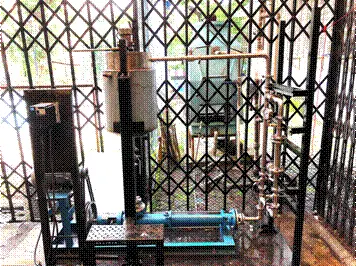

A new method developed to convert poultry feather and wool waste to animal feed and fertilizer
<p>
Indian scientists have developed a new sustainable and affordable solution for converting keratin waste such as human hair, wool, and poultry feathers to fertilisers, pet, and animal feeds, according to information provided by the Ministry of Science and Technology.</p>
<p>
India generates a huge amount of human hair, poultry feather waste, and wool waste each year. These wastes are dumped, buried, used for landfilling, or incinerated, increasing environmental hazards, pollution, and threat to public health and increasing greenhouse gas emissions.</p>
<p>
These wastes are inexpensive sources of amino acids and protein, underlining their potential to be used as animal feed and fertiliser.</p>
<p>
<strong>Also read:</strong>&nbsp;&nbsp;<a href="https://www.indianarrative.com/health-news/big-breakthrough-indian-scientists-invent-device-to-see-effect-of-alcohol-on-blood-cells-71684.html">Big breakthrough: Indian scientists invent device to see effect of alcohol on blood cells</a></p>
<p>
Professor A. B. Pandit, Vice-Chancellor, Institute of Chemical Technology Mumbai, along with his students, has developed a technology to convert the keratin waste to food for pets and fertilizers for plants.</p>
<p>
This novel technology is patented, easily scalable, environment-friendly, energy-efficient, and it will make amino acid-rich liquid fertilizers more economical as compared to currently marketed products.</p>
<p>
They used advanced oxidation for the conversion of the waste to marketable fertilizers and animal feed. The key technology behind this involves pre-treatment followed by hydrolysis of keratin using a technique called Hydrodynamic Cavitation, which involves vaporization, bubble generation, and bubble implosion in a flowing liquid.</p>
<p>
The current chemicals and physical methods for such conversion are energy-intensive, chemically hazardous, and involve multiple steps resulting in a higher cost of the final product. The team has calculated that with the new technology, the cost of the product at a large-scale plant works out to one-third of the cost of the existing market product.</p>
<p>
The scientists are currently implementing this technology at a large scale in collaboration with Revoltech Technologies Private Limited, Gujarat. This advancement in production will make the liquid biofertilisers available to farmers at a much cheaper rate.</p>
Taiwan's Ministry of Foreign Affairs has rejected the joint statement issued by China and Bangladesh…
The Fourth edition of the bilateral Tri-Service India-US Humanitarian Assistance and Disaster Relief (HADR) Exercise,…
External Affairs Minister S Jaishankar on Monday welcomed Netherlands Foreign Minister Caspar Veldkamp to India…
Despite a temporary injunction against the dismissal of Israel Security Agency (Shin Bet) chief Ronen…
Union Home Minister Amit Shah on Monday highlighted the Modi government's achievements in the health…
The e-commerce sector in India is expected to witness the highest salary increments in 2025,…